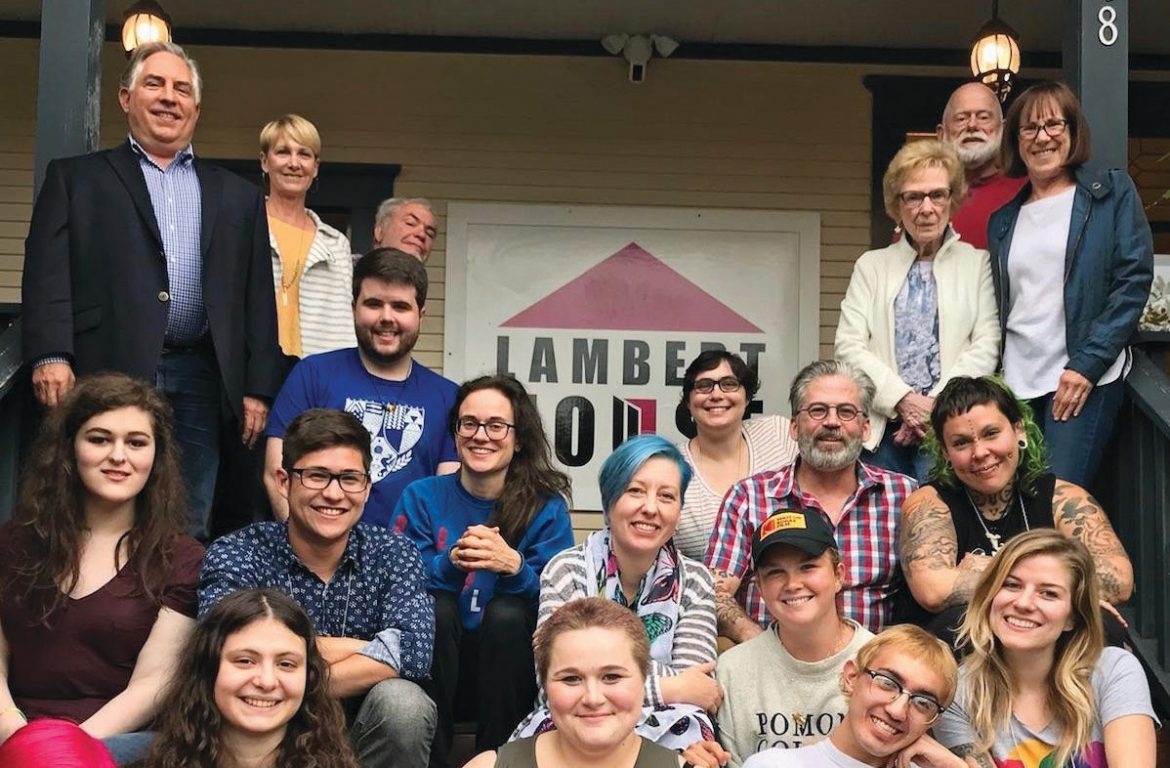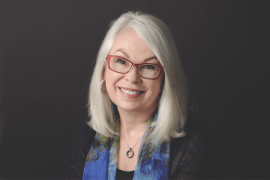A Seattle charity helps isolated, bullied LGBTQ youths find community
written by James Sinks
It’s not uncommon for teens to feel alone. But for preteens, teens and young adults who are gay, lesbian, bisexual, transgender or questioning their sexual identities, family ostracization and social isolation can be devastating.
At such a fragile point in life, feeling unloved can lead to dark paths where nobody wants their kids to go: depression and low self-esteem, poor scholastic performance, escapism and coping via alcohol and drug use, homelessness, risky sexual behavior that increases the risk of contracting HIV, and in the worst-case, suicidal thoughts.
There’s help at Lambert House, in an unassuming yellow Victorian in Seattle’s Capitol Hill neighborhood, and through its online service.
For four decades, the nonprofit has offered bullied queer youth the thing they crave most: safe and positive connections. Lambert House provides a meeting place plus programs to build leadership, social and life skills—with the slate of services shaped by those who participate in them, said executive director Ken Shulman, who has led the nonprofit since 2003.
“The youth we serve are highly diverse, and the one thing they all have in common is a desire to be together with other youth like themselves,” he said. “They desperately need friends in order to avoid the depression and suicidality that come from being rejected by their parents and peers.”
The nonprofit gets funding from both private donors and government sources, and was recently able to pay off the mortgage on the Capitol Hill property with the help of a bevy of donors. Next up is a $4.5 million capital campaign to remodel the house’s basement and attic so the venue can accommodate more people, he said.
Bob Deischer, a pediatrician, founded the charity in 1981. Also the then-director of the Center on Human Development and Disability at the University of Washington, he’d seen that isolated gay, lesbian and bisexual youths experienced more frequent physical and mental health challenges—and looked for a way for them to connect with each other.
Since then, it has served approximately 15,000 young people between the ages of 10 and 22.
Thang Dao, now 21 and attending college in Minnesota to be a doctor, said the “Dark Ages” of middle school were a time of severe loneliness and suicidal thoughts, before finding the nonprofit and—for the first time—long-term and supportive friends. “I don’t have to worry about a place to belong, because I’ll always have a home at Lambert House,” Dao said. “They saved my life; and I’m still here.”
Currently, Lambert House works with 1,300 adolescents and early adults per year, Shulman said, with about 8 percent of them homeless. Lambert House is not, however, a residential facility. Homeless youths receive intervention services and are connected to partners who provide safe housing options.
The nonprofit’s menu of services includes in-person classes and meals, albeit outdoors for Covid safety, at the Capitol Hill property and eight satellite locations. It also provides drop-in recreation sessions and intensive mental health services with a crew of highly trained and screened volunteers.
In addition, through its two-year-old online portal, Lambert House now serves at-risk youths in twenty-eight states and seven countries with programs like “Queerentine,” a chat group.
“We’ve gone from being a local organization serving 135 zip codes mostly in Western Washington to a national organization and, to a limited extent, an international one,” Shulman said. “Most of what we do is prevent risks for those kids who have fallen victim and offer services to help them keep their lives on track.”
Learn more at
www.lamberthouse.org







